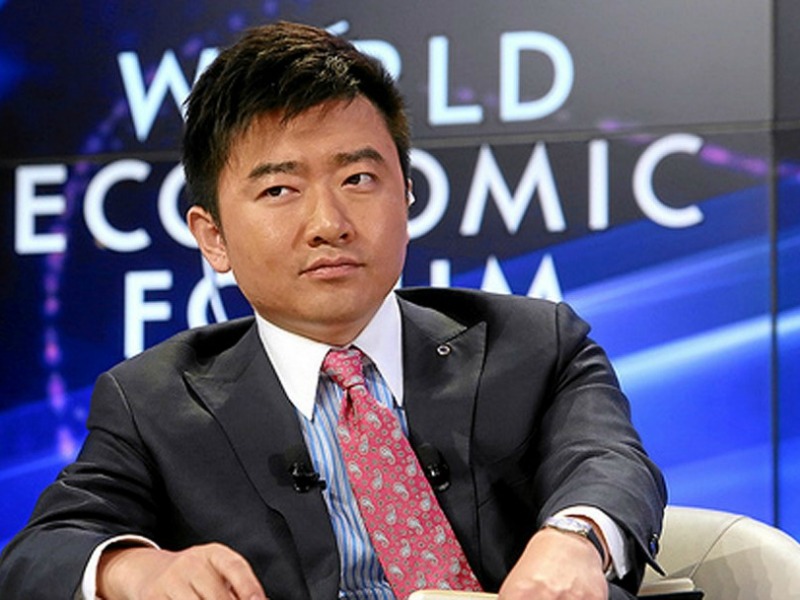Arun Sudhaman 18 Jul 2014 // 8:11AM GMT

At the World Economic Forum in Davos earlier this year, Rui Chenggang was an articulate presence on a star-studded panel convened by Richard Edelman, discussing global trust issues with the likes of Unilever CEO Paul Polman and the FT's Gillian Tett.
The irony of that scenario — Chenggang talking trust and credibility — will not be lost on anyone, following the high-profile CCTV anchor's detention last week, amid a widespread crackdown on corruption in China.
It has since emerged that Chenggang was, until 2010, a shareholder in Edelman's Chinese subsidiary Pegasus. An interesting situation quickly became irresistible for the global media, keenly aware of the mileage afforded by a US PR agency becoming embroiled in a Chinese corruption story.
Yet, beyond the reams of coverage — including our own initial scoop — precious little remains known about why exactly why Rui was detained. The smart money, given the anti-corruption drive launched by President Xi Jinping last year, is that Rui has become embroiled in the case built against his former boss, CCTV’s financial news channel director Guo Zhenxi, who was arrested in June.
If so, then the People Daily tweet linking Rui with Edelman may be nothing more than misdirection. Certainly, most of the people I have spoken to in Beijing PR circles this week appear to take this point of view.
Many of Edelman's rivals are keenly aware of the perils of schadenfreude, particularly in a climate of hostility towards foreign companies.
Bill Rylance, who ran Burson-Marsteller Asia-Pacific before setting up boutique firm Watatawa, probably put it best when he told me: "Edelman will not expect sympathy from peers, but sniping from the sidelines would be smug hindsight. Privately, some firms will be thinking 'there but for the grace of God go us.' China is an MNC minefield of discretions past, morphing into indiscretions present.”
Yet, even if Edelman proves to be nothing more than collateral damage, the firm's ties to Rui raise some uncomfortable questions. Why did it buy a PR firm that was part-owned by a journalist? Why did it allow Rui to remain a shareholder for three years after that?
And, perhaps most pertinently, even if the agency did not have a direct commercial relationship with CCTV, was not it concerned about the conflict of interest posed by a high-profile journalist owning stock in a company that trades on its relationships with the media?
At best, you could argue that Edelman has been careless about the appearance of impropriety. At worst...well, that remains to be seen, although the agency will be confident that its rigorous compliance procedures have not been breached. So far, there is no smoking gun, only the revelation that a couple of Edelman's clients sponsored CCTV's Davos coverage.
If nothing else, though, the former ties between Edelman and Rui have reminded us again of the issues that plague the Chinese PR world. Last year, for example, we asked how complicit international firms are in the various multitude of sins that cover the country's unethical PR practices, a concern that has prompted at least one experienced industry observer to wonder whether regulation is the answer.
"The whole GSK thing means everyone is worried about compliance," one China-based international PR agency head told me. "There are a lot of conflicts of interest and outright corruption among the local PR firms. We’ve looked at a lot of local agencies and when we get down to the due diligence, the numbers are a time-bomb."
There was a time when different ethical standards were tolerated in emerging markets. That is a far less justifiable approach these days, and it is not just because of strict anti-corruption legislation that US and UK MNCs are subject to in their home countries. It also reflects an acceptance that this kind of moral relativism is pernicious, encouraging bad behaviour and stunting the development of a healthy media market and — by extension — a transparent and robust PR industry.
"The persistent idea that China is an island untouched by ethical standards for the conduct of public relations is now demonstrably so much cow manure," says David Wolf in a post published yesterday. "Those who cling to such exceptionalism – and you know who you are – are dinosaurs whose time in this business is limited, regardless of the success they appear to enjoy today."
As ever, compliance is the issue. It is easy for global agency CEOs, safely ensconced in New York, to issue blanket statements that lapses such as these are not tolerated at their companies. It is considerably more difficult to police every act in every country, particularly down at the day-to-day account handling level, where split-second decisions are often made by executives who are inexperienced and under pressure.
Back in January, at the Edelman panel in Davos, Rui Chenggang pointed out that “when a Chinese corporation has no experience about operating in totally different environment, they tend to make mistakes.” The same, once upon a time, could be said for foreign PR firms operating in China. It is unlikely to wash as an excuse any longer.


































.jpg)






.tmb-135x100.jpg)










